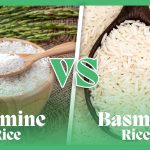In the modern culinary world of steaks and roasts, there emerges a resilient collagen-rich delicacy; beef tendon. Despite its ample nutrient composition, this protein and mineral-rich delight often goes unnoticed among other renowned meat options.
Keeping in mind its non-famous nature, today we are dedicating our article to beef tendon and its nutrition!
Stay with us to uncover the amazing health information regarding this rare treat!
What is it?
The beef tendon is a tough and fibrous part of connective tissue that joins the muscle to bone found in animals such as cows, pigs, and chickens. It is not easily available in the United States but is pretty popular in Chinese, Japanese, Korean, Thai, Taiwanese, Filipino, and Vietnamese cuisines. Beef tendon is an affordable cuisine with a beefy flavor and gelatinous texture used in stews and sauces. It takes about 4 to 8 hours of cooking duration as it can hold a good amount of tension and force.

Nutrient composition:
100 gm of beef tendons provide 146 kcal of energy and as high as 34.6 g of proteins that come mainly from collagen. This protein-rich meat incorporates only 0.62 g of carbohydrates and 7.02 g of fats. Beef tendon is also a good source of minerals such as iron (2.53 g) and potassium (149 mg).
| Nutrients (100 g) | Amount |
|---|---|
| Energy | 146 kcal |
| Protein | 34.6 g |
| Total fat | 7.02 g |
| Carbohydrates | 0.62 g |
| Iron | 2.53 g |
| Sodium | 53 g |
| Potassium | 149 mg |
| Cholesterol | 35 mg |
Role in Human Nutrition:
Some of the nutritional benefits of beef tendon are:
Healthy skin, hair, and nails:
Beef tendon is a rich source of protein collagen that provides elasticity, structure, and strength to the body tissues. The body’s natural collagen production process decreases with increasing age which causes saggy skin, wrinkles, and even stiff joints. Beef tendon consumption may help the body promote healthy skin, hair, nails, and joint motility.
A group of scientists studied the effect of oral collagen on skin and joint health that collagen consumption may improve skin and joint health by slowing down the effects of aging (3).
Joint health:
Collagen is a key factor in maintaining healthy joints including ligaments, cartilage, and tendon. Beef tendon being an excellent source of collagen may prevent the body from joint disorders such as osteoarthritis and improve joint health.
Studies have exhibited positive effects of collagen supplements and collagen-rich foods on joint health, where a study carried out on athletes with joint pain who were given collagen supplements showed a significant reduction in it (1).
In addition, collagen consumption is also effective in patients with osteoarthritis (2).
Gut health:
Collagen is essential in maintaining the gut lining responsible for digestion and absorption of nutrients. Beef tendons rich in collagen may help maintain and repair this gut lining for its efficient processing.
Glycine and glutamine are two amino acids found in collagen that soothe the gut lining and maintain the integrity of the intestinal barrier. Studies have also shown the beneficial effects of collagen on people with inflammatory bowel disease.
Sleep quality:
Glycine, a non-essential amino acid found in beef tendons improves sleep quality. Glycine also aids in the production of serotonin neurotransmitter that regulates the sleep cycle.
Weight management:
Beef tendon is low in calories and fat, thereby making it a healthy option for people to lose weight.
Bone health:
Beef tendon contains high levels of phosphorus that help maintain bone health by sustaining the connective tissues of muscles, bones, and ligaments.
Collagen, a key component of beef tendon keeps bones strong in combination with phosphorus and calcium.
Digestive health:
The rich collagen and gelatin content in the beef tendon is beneficial, especially for people suffering from digestive issues as they protect the gut lining and help produce gastric juices necessary for digestion.
Adverse effects of beef tendon:
When it comes to the adverse effects, beef tendon may contribute to the following:
Allergic reaction:
Some people might experience allergic reactions to the collagen protein found in excess in beef tendon. Some allergic reaction symptoms are hives, swelling, difficulty breathing, and anaphylaxis.
Gastrointestinal discomfort:
GI discomfort is one of the most prevalent conditions to suffer from after consuming beef tendon. Although tendons are easy to digest, some people might not fully digest the protein and collagen and may complain of gas, bloating, abdominal pain, and diarrhea.
The tendons from old animals may be tough to digest, so a longer cooking duration is crucial to bring the softness of the meat for easy digestion.
Cardiovascular risk:
The high level of cholesterol present in the beef tendon may put people at risk of certain heart diseases by building up plaque in arteries.
Type 2 diabetes:
People at risk of diabetes with a family history need to keep their beef and beef tendon intake in check since overconsumption of it may speed up the progression of type 2 diabetes.
Recipes:
Let’s discuss how to cook and serve this nutritional powerhouse of cuisine. Some of the recipes are discussed below:
Steamed beef tendon:
Steaming the tendon alone or with vegetables to make the meat soft and tender and preserve its nutrients is one of the great ways to enjoy this delicious and healthy food.
Grilled beef tendon:
The beef tendon can also be included in your diet in your BBQs to achieve its nutritional qualities alongside its grilled taste.
Pickled beef tendon:
Yes, you read that right! You can pickle your tendon!
People used to pickle food a lot and it is still an excellent way to keep food in the refrigerator for a long time.
Beef tendon bowl:
Marinate tendons in your favorite sauces, cook and enjoy a hot bowl of beef tendons on a cold winter night.
Rice beef tendon:
A suitable dish for summer is to put beef tendons on your preferred rice.
Beef tendon soup:
Submerge your blanched tendons into a pot of water, add spices, and let them simmer in the water for 6-7 hours. Put the broth and tendons into your soup and serve.
Beef tendon curry:
Parboil the tendon with ginger to remove any foul smell. Cut your vegetables and put them in the pressure cooker alongside your tendons and water to cook. Sautee and blend the vegetables into a smooth paste and add them to the stock, add spices, and simmer on low heat for a few minutes. Add them to a bowl, sprinkle green onions on it, and enjoy!
Storage:
Beef tendon can be stored in an airtight container in the fridge for up to a week. Uncooked tendons can be frozen for up to 3 months by wrapping them tightly in plastic and storing them in a zip bag or an air-tight container to maintain freshness.
Despite not being the preferred choice of beef in many parts of the world, beef tendon is a superb pick to include in our everyday diet. Collagen might not be a complete protein; however, the amounts of benefits it provides are numerous.
References:
- https://doi.org/10.1185/030079908X291967
- https://doi.org/10.4172/2167-7921.1000233
- https://doi.org/10.1016/j.nutres.2018.06.001








